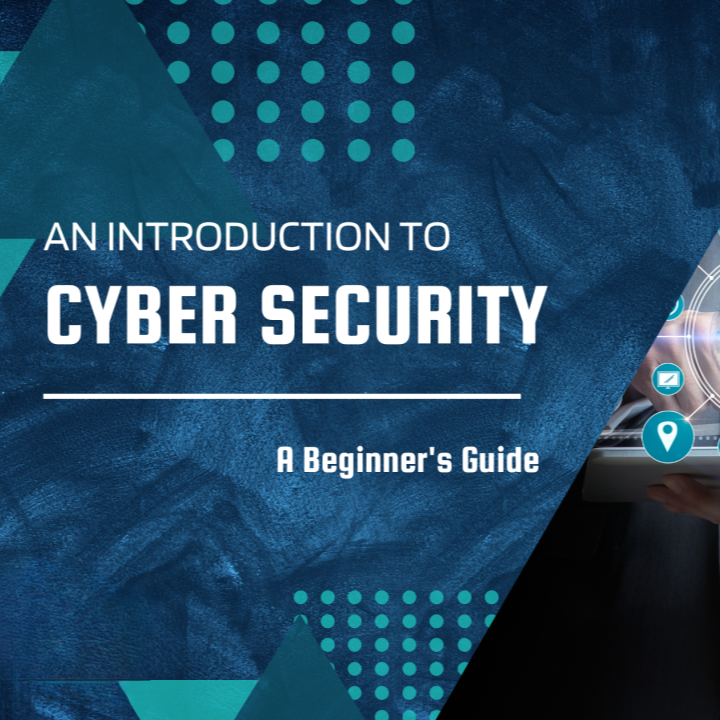Description
The Threat Intelligence in Cybersecurity course is designed to provide participants with a comprehensive understanding of detecting, analyzing, and responding to cyber threats using threat intelligence. The course equips learners with the skills and knowledge required to anticipate, identify, and mitigate cyber threats, ultimately enhancing organizations’ security posture.
Objectives
By the end of this course, participants will be able to:
- Understand the fundamentals of threat intelligence and its role in cybersecurity.
- Identify various types of cyber threats and their characteristics.
- Collect and analyze threat data from multiple sources.
- Utilize threat intelligence tools and platforms effectively.
- Develop and implement threat intelligence strategies and frameworks.
- Collaborate and share threat intelligence information within and across organizations.
- Respond to cyber threats using actionable intelligence.
Modules
1. Introduction to Threat Intelligence
- Definition and importance of threat intelligence
- Evolution of threat intelligence in cybersecurity
- Key components and lifecycle of threat intelligence
2. Types of Cyber Threats
- Malware, ransomware, and phishing attacks
- Advanced Persistent Threats (APTs)
- Insider threats
- Zero-day vulnerabilities
- Case studies and real-world examples
3. Threat Data Collection
- Sources of threat data (open-source, proprietary, dark web, etc.)
- Techniques for collecting and aggregating threat data
- Legal and ethical considerations in threat data collection
4. Threat Analysis and Intelligence
- Analytical frameworks and methodologies
- Tools and platforms for threat analysis (SIEM, IDS/IPS, etc.)
- Indicators of Compromise (IOCs) and Tactics, Techniques, and Procedures (TTPs)
- Threat actor profiling and attribution
5. Threat Intelligence Platforms and Tools
- Overview of leading threat intelligence platforms
- Hands-on with popular tools (e.g., MISP, ThreatConnect, Anomali)
- Integration of threat intelligence into security operations
6. Developing Threat Intelligence Programs
- Building a threat intelligence team
- Creating and implementing threat intelligence policies and procedures
- Threat intelligence sharing and collaboration frameworks (e.g., ISACs, ISAOs)
7. Operationalizing Threat Intelligence
- Turning intelligence into action
- Incident response and threat intelligence
- Case management and reporting
- Continuous improvement of threat intelligence processes
8. Legal, Ethical, and Compliance Considerations
- Data privacy and protection laws
- Compliance requirements (e.g., GDPR, CCPA)
- Ethical hacking and responsible disclosure
9. Emerging Trends and Future Directions
- AI and machine learning in threat intelligence
- Threat intelligence for IoT and cloud security
- Future challenges and opportunities in the field
Teaching Methods
- Lectures and Presentations: Detailed explanations and theoretical background on threat intelligence concepts.
- Hands-on Labs: Practical exercises using real-world scenarios and threat intelligence tools.
- Case Studies: Analysis of recent cyber incidents and application of threat intelligence techniques.
- Group Discussions and Workshops: Collaborative activities to foster knowledge sharing and teamwork.
- Guest Lectures: Insights from industry experts and thought leaders in cybersecurity.
Assessment and Certification
- Quizzes and Exams: Periodic assessments to evaluate understanding of course material.
- Lab Assignments: Practical tasks to demonstrate hands-on skills in threat intelligence.
- Capstone Project: Comprehensive project to apply knowledge and skills in a real-world scenario.
- Certification: Participants who complete the course and assessments will receive a certificate of completion.
Target Audience
- Cybersecurity professionals are seeking to specialize in threat intelligence.
- IT professionals and system administrators looking to enhance their security expertise.
- Security analysts and incident responders aim to improve their threat detection and response capabilities.
- Is anyone interested in pursuing a cybersecurity career focusing on threat intelligence?
Prerequisites
- Basic understanding of cybersecurity concepts and principles.
- Familiarity with common cyber threats and attack vectors.
- Knowledge of network security and incident response processes is beneficial but not required.
This course offers a blend of theoretical knowledge and practical skills, preparing participants to leverage threat intelligence effectively in their cybersecurity roles. Through lectures, hands-on labs, and real-world case studies, learners will gain the expertise needed to protect their organizations from sophisticated cyber threats.







Dare –
“This Threat Intelligence in Cybersecurity course has been an invaluable tool in my professional development. The expert instructors provided comprehensive coverage of the latest techniques and best practices in threat intelligence, enabling me to gain a deep understanding of the evolving cyber threat landscape. The hands-on exercises and real-world case studies were particularly effective in reinforcing the concepts and empowering me with practical skills. The course has significantly enhanced my ability to identify, analyze, and mitigate cyber threats, making me a valuable asset to our organization.”
Rukayat –
“This ‘Threat Intelligence in Cybersecurity’ course has been an invaluable asset in enhancing my knowledge and skills in the field. The content was comprehensive and up-to-date, providing me with a solid foundation in threat intelligence concepts, techniques, and tools. The hands-on labs and real-life case studies were particularly effective in solidifying my understanding and practical application of the material. The instructor was highly knowledgeable and guided us through the course with expertise and enthusiasm. I highly recommend this course to anyone seeking to develop their expertise in threat intelligence and safeguard their organizations against emerging cybersecurity threats.”
Lauwali –
“I highly recommend ‘Threat Intelligence in Cybersecurity’ for anyone seeking to deepen their understanding of the evolving cyber threat landscape. The course comprehensively overviews threat intelligence principles, techniques, and tools. The expert instructors shared invaluable insights and real-world examples, enhancing our ability to identify, analyze, and respond to threats effectively. The practical exercises and hands-on simulations reinforced the concepts, equipping us with the skills necessary to contribute to our organizations’ cybersecurity posture.”
Basiru –
“The ‘Threat Intelligence in Cybersecurity’ course was an invaluable investment. The comprehensive curriculum equipped me with the knowledge and skills to identify, analyze, and mitigate cyber threats effectively. The instructors’ expertise and real-world insights provided an exceptional learning experience, empowering me to develop a robust understanding of the cyber threat landscape and its implications for organizations. This course has significantly enhanced my confidence and capabilities in the field of cybersecurity.”
Ola –
“This ‘Threat Intelligence in Cybersecurity’ course has been an incredible investment in my career. The comprehensive coverage of threat intelligence principles, techniques, and tools has not only enhanced my technical skills but also my understanding of the latest cybersecurity threats. The hands-on exercises and case studies provided valuable experience in conducting threat intelligence investigations and developing effective mitigations. I highly recommend this course to anyone looking to advance their skills in cybersecurity and stay ahead of evolving threats.”